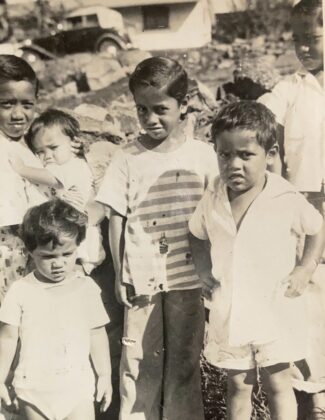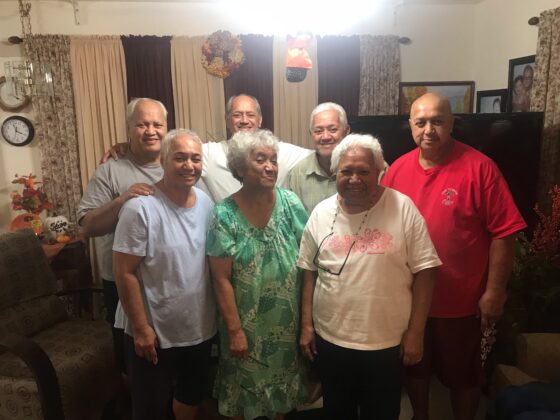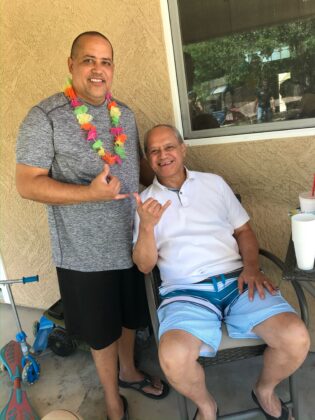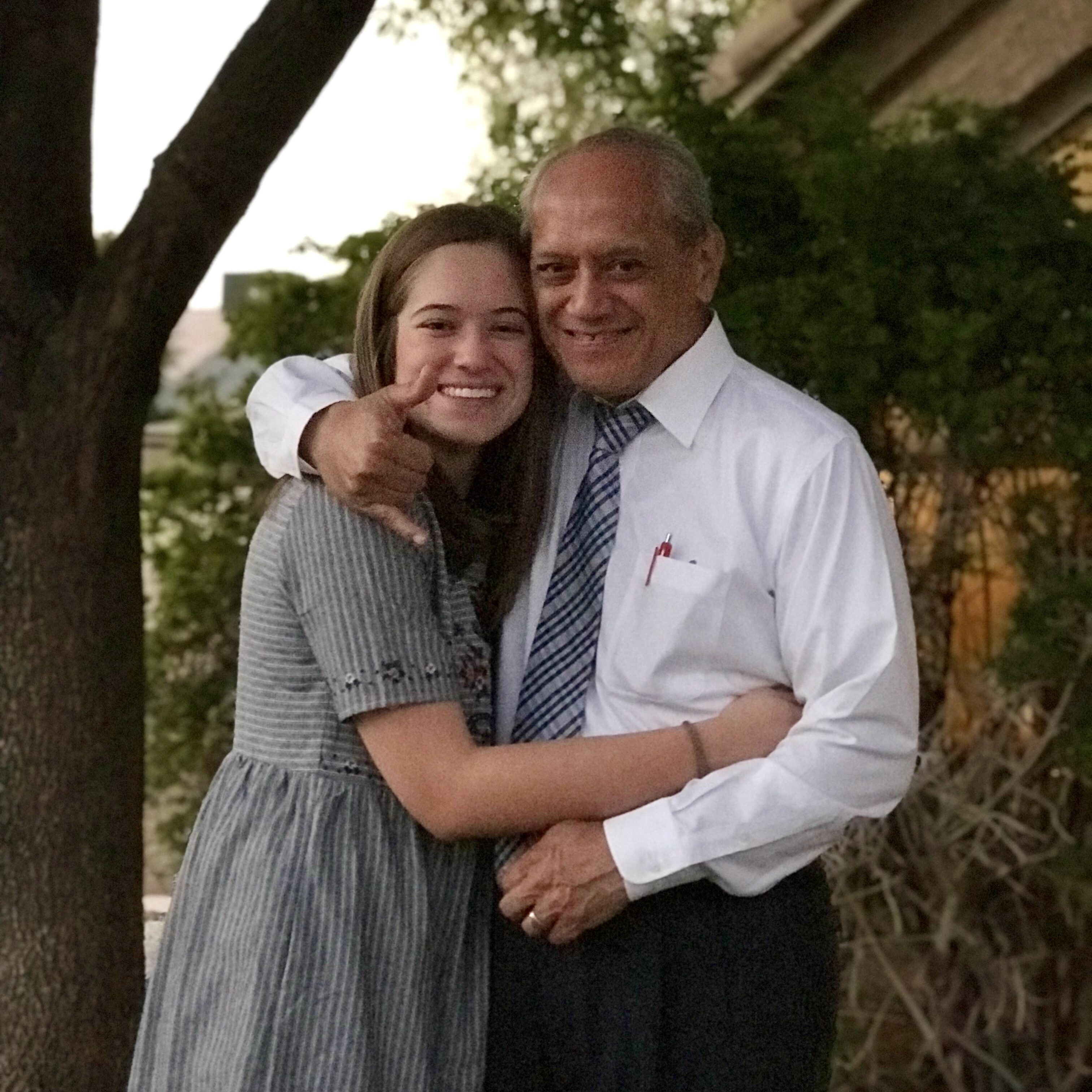
The values of culture, tradition and family run deep in the Enos family. BYU student Jacquelyn Noelani Enos Porter shared her experience being a quarter Hawaiian and what “home” means to her.
Porter is a senior at BYU studying exercise and wellness with a minor in entrepreneurship. “Although I’ve been here for four years,” she said, “Arizona has always been my home.”
Although Arizona has been home during Porter’s life, Hawaii is her family’s place of origin and they strive to represent their culture throughout generations.
Tutu Man and the importance of family legacy
Porter’s grandfather, Ronald Kaleookalani Enos, called “Tutu Man” or “Tutu,” moved his young family to Mesa in 1986. Enos was born in a small community north of Honolulu called Papokolea.
“I grew up in my native Hawaiian culture speaking the Hawaiian language; eating Hawaiian food of fish, pork and poi; and enjoying Hawaiian music, mainly the chants and dances,” Enos said.
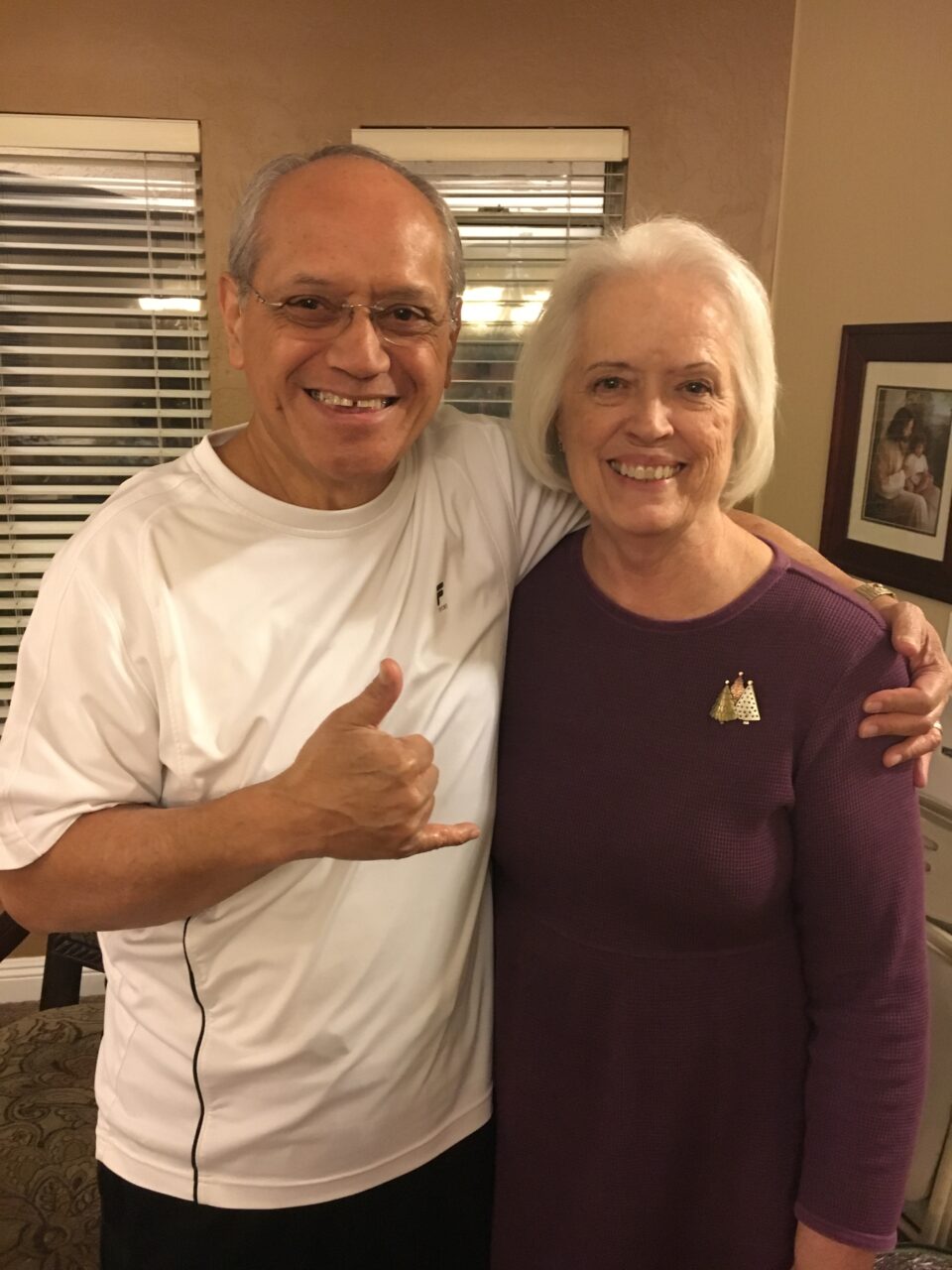
After his mission, he moved to Utah to attend BYU, where he met his wife, Linda Gale Tanner Enos. Ronald Kaleookalani Enos became a seminary teacher for the Church of Jesus Christ of Latter-day Saints and moved around several times with his young family until they settled in Arizona.
Ronald Kaleookalani Enos is the only one of his siblings that no longer lives on the islands, which is difficult for several members of the family. Every two years, the family travels back to Hawaii for a family reunion. While there, Porter noticed the difficulty between Enos and his siblings.
“I hear his siblings give him a hard time about ‘leaving them,’” she said. “My tutu always replies that he did what he felt was best for his family … so he doesn’t regret anything.”
While living away from Hawaii, Enos teaches and represents Hawaiian culture, passing down traditions to future generations to keep them connected to their roots.

One way Enos has been able to do this is through the unique opportunity he has in giving the grandchildren and great-grandchildren their Hawaiian names.
“My mother, following traditions, gave each of my children their names: Kaleookalani (voice of the heaven), Kunane (a kindly brother), Mehana (a warm person), Maile Auli’i (one who will stay close to us to cling to us), Keali’i (the King), and Mahealani (Heavenly moonlight),” Enos said. “My mother continued to give my grandchildren their names till she passed away. It has been a blessing and an honor for me to continue to carry a tradition among the families of each of our grandchildren.”
Enos identifies everyone in his family by their Hawaiian names from birth to keep them connected to their culture. He also teaches them music, dances and simple Hawaiian phrases.
“The spirit of aloha was the most powerful tradition that I instilled in my family,” Enos said. “This tradition breaks all barriers of hate, anger and destruction and increases love, care and concern for all.”

Enos explained that the “spirit of aloha” is further represented through the culture as every adult individual is called “Uncle” and “Aunty,” even outside of the family.

As far as relationships are concerned, Enos makes an effort to meet with each grandchild and great-grandchild individually at least once a month. “It is a special time for me to understand and share personal feelings with each of them,” he said.
Enos explained that he and his wife also host family dinners every Sunday with the hopes that the family can strengthen each other as a “ohana” family.
“We are also always there for all of the events in people’s life, cheering them on when something good is happening or rallying around them and supporting them in trials,” Porter said.
Porter’s own family legacy
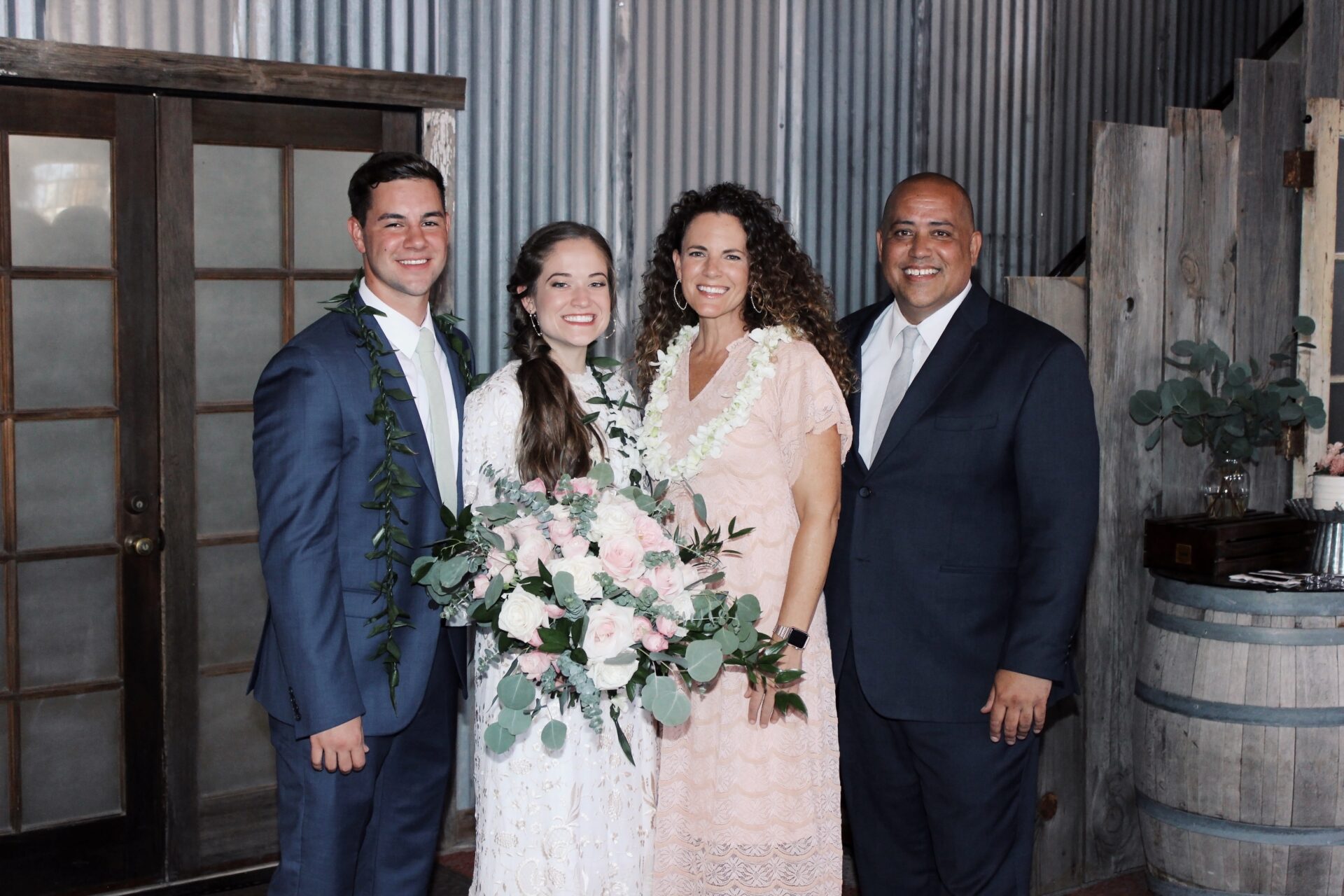
Noelani and Jacob Porter were married August 2020. After their first anniversary, they felt it was time to start their family. They found out they were pregnant after the first month and the next few weeks were as expected.
“I had my first doctor’s appointment a little after 11 weeks,” Noelani said. “We found out that our baby’s heart stopped beating at nine weeks and I was having a missed miscarriage.”
A Stanford study shows that one out of four pregnancies may end in pregnancy loss. Jacob Porter explained how difficult it was to go through this trial in the midst of the initial excitement of starting their family.
“Recurrent loss is not a group that anyone wants to join, but it’s comforting to know that you’re not alone,” Noelani Porter said.
The Porters found out they were pregnant for the third time in April of this year and are expecting a healthy baby boy in January.
“There has been a lot of anxiety tied to this pregnancy after two losses. I feel like I was stripped of the pure excitement and joy of pregnancy, and now feel a lot of stress and anxiety. But I feel so grateful to be carrying a healthy baby,” Noelani Porter said.
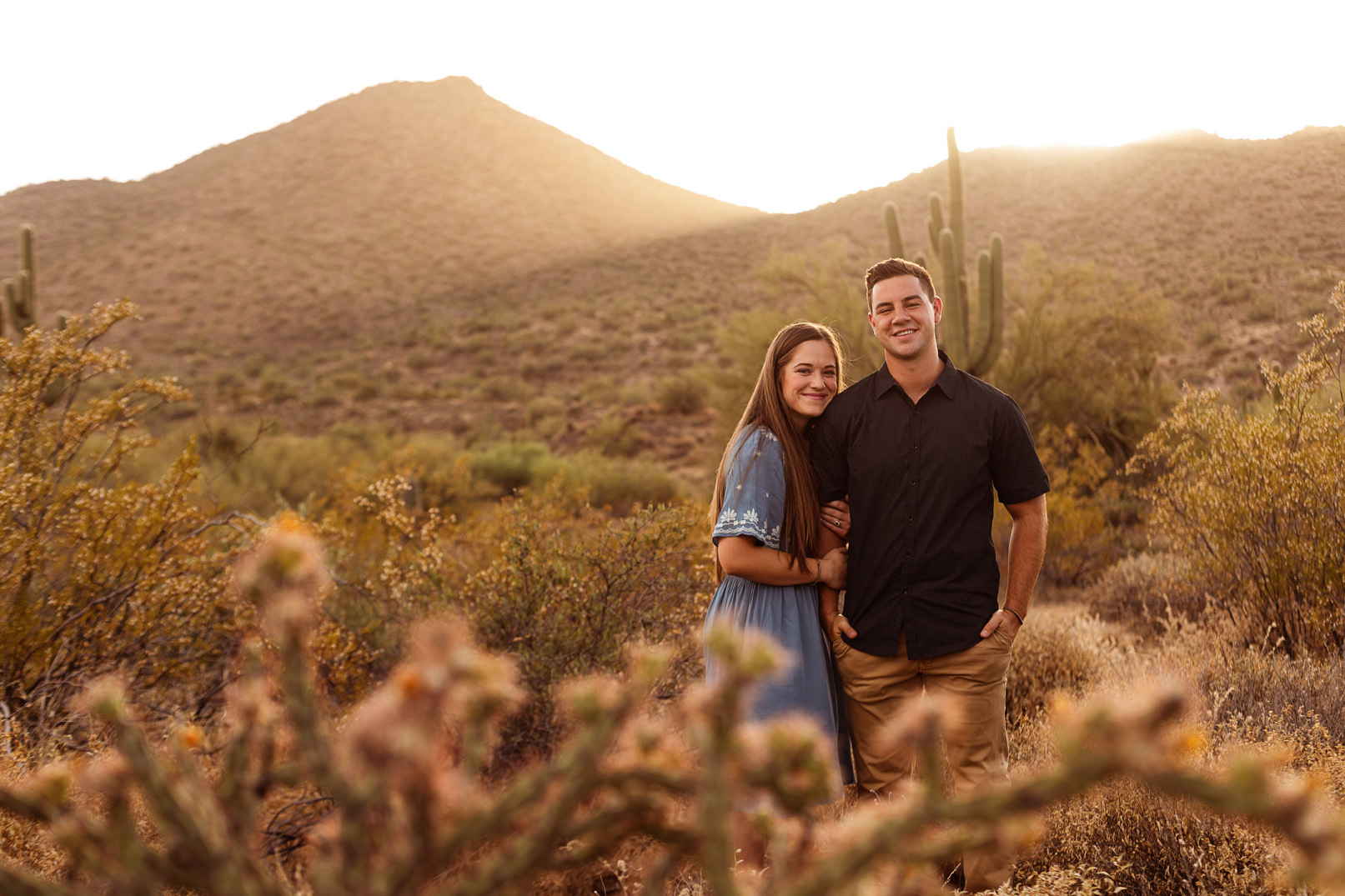
“The thing I’ve learned through all of this is how big a miracle it really is to bring a child into this world,” Jacob Porter said. “It’s so important to be excited and love your kids no matter how long you have them.”
In anticipation for the arrival of their son, they are planning to pick out the child’s Hawaiian name.
“The tradition is that tutu man names his grandchildren and great grandchildren by their Hawaiian name,” Jacob Porter said. “He takes the time to think of a name that has a unique meaning and emulates both Noelani and I.”
The process of picking a Hawaiian name passed down from Porter’s tutu is similar with each child.
“We went to him after finding out that we were having a boy, and he gave us six names. He said that he chooses by looking at the baby’s mother and father and their personalities, then prays and finds names that he feels fit with our character traits and the type of children we will raise,” Noelani Porter said.
The two plan on moving back to Arizona after finishing school to remain close with their families and continue tradition.
“I want to raise my family to be close to our families. I also want to teach them to have respect for their culture, name and the family they came from,” she said.

